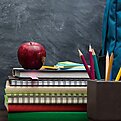On March 26, 2020—two weeks after schools around the country were shuttered and suddenly almost everyone was receiving education at home—Cato convened an expert panel to give advice and answer questions about homeschooling. It is unlikely anyone who participated in that discussion expected we would still be dealing with school closures two years later.
While there are lags in official data, it appears that homeschooling has greatly increased since March 2020. Is that accurate? What has the experience been like for families, including longtime homeschoolers and newbies who started during the pandemic? What lessons have been learned?
We’ll mark the two-year anniversary of school closures with a panel discussion on homeschooling today. Featuring a diverse group whose experiences include urban homeschooling, hybrid homeschooling, and forest schools, this panel is designed to assess the current state of homeschooling and help parents understand the wide variety of options available to them.





